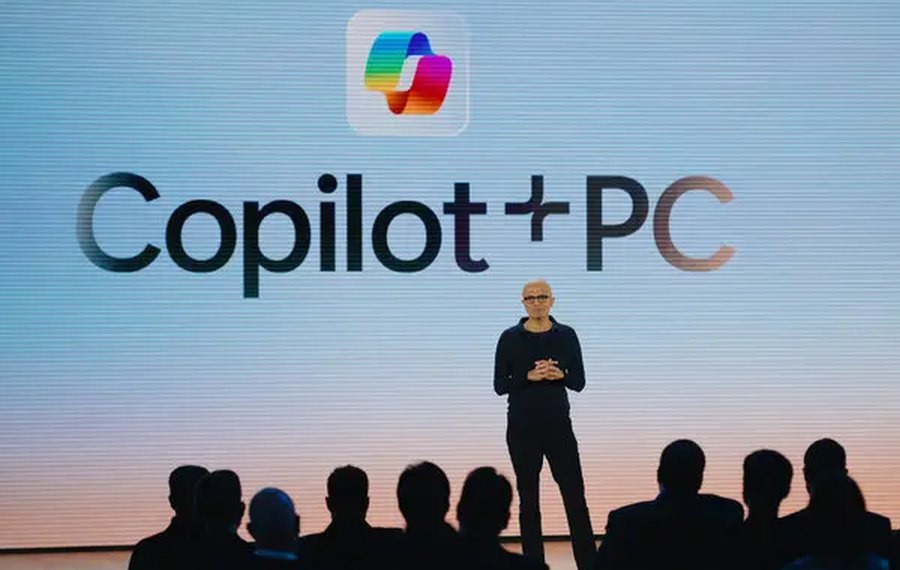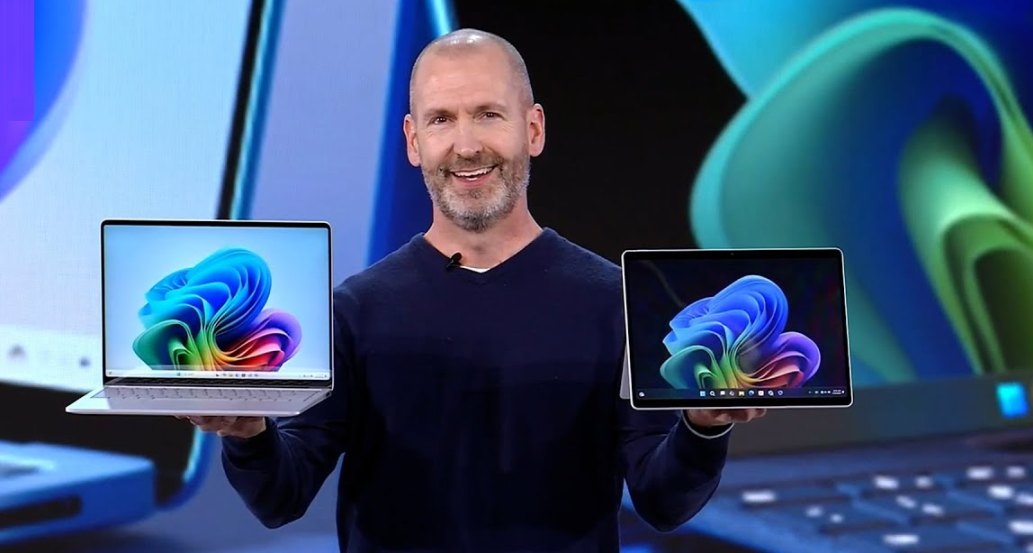Microsoft launches AI-powered ‘Copilot+’ PCs to challenge Apple MacBooks

The push to integrate artificial intelligence into every device reached a new milestone this week with the launch of AI-powered personal computers and laptops. Microsoft on Monday unveiled an entirely new class of Windows PCs called Copilot+ PC and Surface Pro 2-in-1, which aims to be your everything device that harnesses the power of advanced AI to enhance user experience and productivity like never before.
Equipped with Qualcomm chips that can run some AI tasks without an internet connection, Microsoft says that the new Surface Pro 2-in-1 can do everything your regular laptop and tablet can do, but better. Microsoft added that these devices are designed to integrate A.I. systems directly into their internal hardware, with the promise of faster performance, enhanced personalization, and improved privacy.
Microsoft says that Copilot+ PC aims to revolutionize how users interact with their devices. With these AI-powered computers, users can more easily locate documents and files, recall emails, and revisit websites they have previously browsed. Additionally, the built-in A.I. systems will streamline tasks such as photo editing and language translation, making everyday computing more efficient.
Microsoft is not alone. Major PC manufacturers like Acer, Asus, Dell, HP, Lenovo, and Samsung are also launching AI-ready PCs powered by Qualcomm’s Snapdragon X Elite and X Plus processors, which promise longer battery life and will run Microsoft’s Copilot AI chatbot.
In a keynote address at its Redmond campus, Microsoft said that PC manufacturers will soon release devices equipped with AMD and Intel chips that adhere to the new Copilot+ standard. These PCs will offer advanced features such as audio translation, suggested responses to messages, and interactive screen discussions.

Starting at $999, Copilot+ PCs are available for pre-order as of Monday, with an official release scheduled for June.
One of the standout features of these new devices is the Recall function, which can search through a log of previous actions on the PC. This feature leverages AI models that operate directly on the device, enabling offline functionality and ensuring that data indices are not sent to remote servers. Additionally, these AI models can generate images from written descriptions and drawings.
Microsoft is leaning on Qualcomm’s energy-efficient Arm-based chips to bolster its Windows franchise, facing competition from Apple’s MacBooks, which have successfully transitioned to Arm-based chips from Intel.
Expanding its AI capabilities, Microsoft aims to integrate ChatGPT-like features across consumer and business products. OpenAI, backed by Microsoft, launched the ChatGPT chatbot in late 2022, rapidly becoming a tool for generating computer-written poems, email drafts, and summaries of historical events.
Following this trend, Microsoft has incorporated generative AI into its Bing search engine and Windows operating systems. Office productivity software subscribers can also opt for a Copilot that references their documents for creating written responses.
While the GPT-4 model within ChatGPT has traditionally relied on Microsoft’s Azure cloud for computational tasks, the new PCs will be able to run some AI models locally without needing an internet connection.
This launch follows Microsoft CEO Satya Nadella’s forecast in an earnings call, predicting that “in 2024, AI will become a first-class part of every PC.”
Historically, Microsoft has struggled to gain traction with Arm-based Windows computers, often due to performance issues and software incompatibilities compared to Intel or AMD-based PCs. However, the capability to run generative AI locally could increase the appeal of Windows on Arm, given the need for more power and robust battery life.

